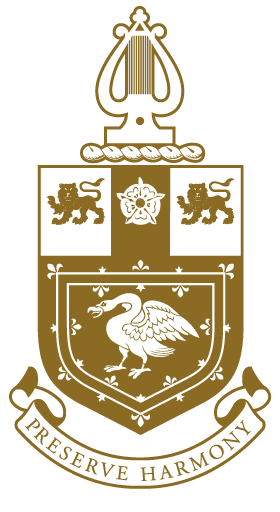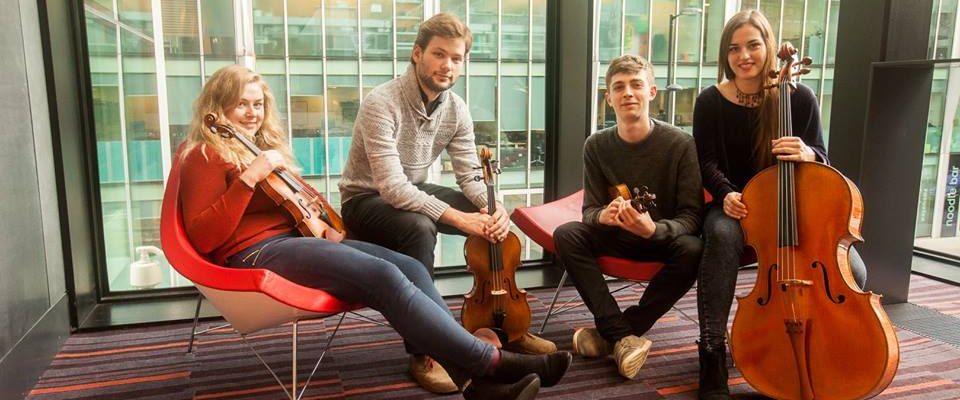Young Artist Interview: Ashok Gupta
To start with, I improvised a lot at the piano, making up things because I couldn’t read music! Then I played in jazz groups and wrote music for school plays and competitions. I remember one school competition was adjudicated by Dudley Moore and composed a piece for it as a class. We won and the school received several pianos and a lot of embossed hoodies! The pianos we won were so inspiring to play on for all of us and I remember being transfixed by the sound. I played a lot of solo music and accompanied classmates until, in the last couple of years at school, I got hooked by the challenges of playing the organ. Playing a keyboard with your feet seemed so ridiculous. Nevertheless, my feet got me into university with an organ scholarship to Cambridge and my brain had to catch up!
Being at Cambridge was a learning curve. Of course, I was intimidated by its traditions and history – at first I was nervous to make any music at all! But then I was introduced to continuo-playing, standing in for an organist in the St. Matthew Passion. I loved the feeling of playing the harmonic core of a masterpiece like that within a chamber group. Furthermore, harmonising figured-bass allowed me to apply my interest in improvisation to something seemingly academic.
I accompanied many talented singers at university, many of whom are rising stars and enjoying terrific careers, which is really exciting to witness. One of those singers is tenor, Alessandro Fisher, whom I have just accompanied at Wigmore Hall. It was our first recital together there and a result of Alessandro’s winning joint First Prize at the Kathleen Ferrier Competition. Alessandro’s stellar career is reflective of his immense talent: he is such a natural musician, linguist, performer and his voice is beautiful. I have learned so much from his sensitivity to language, phrasing and selfless investment of emotion and energy in performance. Collaborating with him is always such a joy and performing in such a special place as Wigmore Hall was no exception.
The Guildhall School of Music and Drama in London, where I did a postgraduate repetiteur course, introduced me to opera and from there I went on to work at Glyndebourne, where I played my first complete Mozart opera Le Nozze di Figaro. Being surrounded by singers, music staff and a production team who knew this music inside out was such an education. They guided me through Figaro and in so doing opened my eyes to Mozart’s treatment of text, characterisation, orchestration, to style and many other things. This was not only an awakening to Mozart’s music but also a key to the world of Viennese classical music, which I love and hope to carry on exploring forever. One of the best things about working in opera is that my horizons constantly shift. I cross paths with so many people who, sometimes unknowingly, teach and inspire me.
In the last few years I have entered some piano competitions. I have had mixed success in terms of winning, but my intention was and still is to push my playing to the best it can be. Most recently, in December 2017 I participated in the Beethoven Competition in Bonn. The experience was intense: live streaming, a very visible panel of judges and a very palpable musical history to the city. It was the scariest thing I have done but I think two things saw me through it: my love for Beethoven’s music and the wonderful hosts Telekom put me up with, who looked after me like their own! I got to the semi-final and won the Chamber Music Prize for accompanying cellist, Emil Rovner – a result by which I was thrilled and surprised.
Bartok said competitions are for horses, and some of them seem that way, but Bonn taught me if you pick the right competition (there are many that focus on specific repertoire if that is more your thing) you will inevitably come away with something, whether it be a proper prize or not. In one week I learned more about performing and myself than I have in any other week so far!
On the final day I visited Beethoven’s house in Bonn. Beethoven lived in the city until he was 21 before moving to Vienna. His house features, among other things, some of his pianos, manuscripts, letters and the Heiligenstadt Testament in which he acknowledges his deafness. I found it particularly touching to see his spectacles, his razor and a lock of his hair, all reminding me that he was a human being! The visitors’ book contains messages from all over the world and one particular message sticks with me… “if only you could see how much money they’re making out of you”!
There is of course an endless list of things I would like to do, including performing more chamber music and learning more about jazz – if there are any jazz musicians reading this, I would love to discuss this with you! Continuing to learn and enjoy is important too.
You can find out more about Ashok at: www.ashokgupta.co.uk





